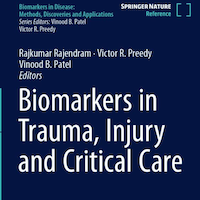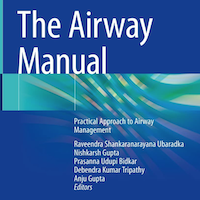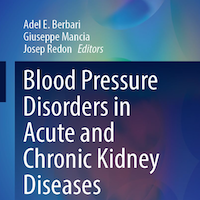Tag: sepsis
Precision at Scale: Automating the SOFA Score for Smarter ICU Care
The Sequential Organ Failure Assessment (SOFA) score is a vital tool for diagnosing sepsis and predicting patient outcomes in the ICU, but its manual calculation is often plagued by human error and scalability issues. To... read more
Breaking the Silos: How a Federated Europe Could Solve the Sepsis Puzzle
The landscape of critical care research is currently hindered by "data silos"—isolated pockets of patient information that are difficult to share due to privacy concerns and technical incompatibility. This narrative review... read more
Beyond the Pressure: Moving Toward Personalized Sepsis Care
In the high-stakes environment of septic shock, the current clinical "gold standard" remains the early initiation of norepinephrine. However, when blood pressure targets aren't met, the next steps often become a pragmatic... read more
Predicting Sepsis-associated Encephalopathy in Septic ICU Patients with AKI
Researchers developed a simple, interpretable nomogram to predict sepsis-associated encephalopathy (SAE) on day 1 in septic ICU patients who also have acute kidney injury (AKI), using data from the large MIMIC-IV database... read more
Severe Trauma and Sepsis: Organ Damage and Tissue Repair
This book discusses recent progress in organ damage and tissue repair following severe trauma and sepsis. In part 1, it introduces the theory and clinical practice in organ damage. In part 2, it covers all the subjects... read more

Metabolic Acidosis Worsens Cardiac Function and Vasopressor Needs in Septic Shock
In a prospective observational study conducted from January to December 2024 at Hospital de Especialidades No. 14, IMSS, in Veracruz, Mexico, researchers examined the cardiovascular effects of acute metabolic acidemia in... read more
Corrected Serum Calcium Levels Predict 28-Day Death Risk in Sepsis
In a large cohort study utilizing data from 7,627 sepsis patients in the eICU Collaborative Research Database, researchers uncovered a clear U-shaped relationship between corrected serum calcium (sCa) levels and 28-day mortality.... read more
Sepsis: Definitions, Pathophysiology and the Challenge of Bedside Management
A comprehensive and state-of-the-art resource for clinicians who care for patients with sepsis and research scientist alike. Patients with severe sepsis requiring ICU admission have very high rates of ICU and overall... read more

Neostigmine’s Anti-Inflammatory Edge: Cholinergic Boost Slashes Cytokines, Organ Failure, and Mortality in Septic Shock
In a randomized controlled trial, researchers investigated the adjuvant use of continuous neostigmine infusion (0.2 mg/hr for 5 days) in patients with septic shock, leveraging its ability to enhance vagal cholinergic anti-inflammatory... read more
AI Foresees the Squeeze: Machine Learning Predicts Vasopressor Needs Hours Ahead in Sepsis Patients
This proof-of-concept retrospective study, utilizing the MIMIC-IV v2.2 database (2008–2019), demonstrates that an interpretable machine learning model based on routinely collected electronic health record data from ICU... read more
Sepsis Management: PIRO and MODS
This book is unique in approaching multiple organ dysfunction syndrome (MODS) from the perspective of its pathophysiological mechanism, and addressing aspects that are overlooked in most of the available literature. Eminent... read more

Urinary Source Saves Lives: Why Infection Origin Matters in Septic Shock for Patients Over 90
In critically ill nonagenarians and centenarians admitted to ICUs with septic shock, the source of infection emerges as a key independent predictor of long-term survival, varying over time. Patients with septic shock from... read more
Obesity Paradox or Myth? BMI Shows No Impact on Sepsis Survival in ICU Patients
This retrospective cohort study examined the association between body mass index (BMI) and clinical outcomes in 559 adult ICU patients with sepsis admitted between January 2021 and December 2023. Patients were categorized... read more
Biomarkers in Trauma, Injury and Critical Care (Biomarkers in Disease: Methods, Discoveries and Applications)
This handbook systematically presents biomarkers for traumatic injuries. The book covers topics such as traumatic brain injury, liver injury, burn severity, muscle heart damage, and acute inflammation in polytrauma and their... read more

Sodium Levels and Sepsis-Related Liver Injury: A Threshold Effect
A retrospective cross-sectional study utilizing data from the MIMIC-IV database explored the relationship between serum sodium (SNa) levels and the risk of Sepsis-Related Liver Injury (SRLI) in 11,809 adult ICU patients with... read more
Triumph Over Sepsis: Dramatic Mortality Decline in ANZ ICUs, With a Post-2020 Rebound
In a comprehensive analysis of over 2.9 million ICU admissions across 219 Australian and New Zealand intensive care units from 2000 to mid-2023, in-hospital mortality for adult patients with sepsis (per Sepsis-3 criteria)... read more
Vasopressin in Septic Shock: When and How to Use the Second-Line Vasopressor
SSC Guideline Recommendation: The Surviving Sepsis Campaign (SSC) weakly recommends adding vasopressin as a second-line agent instead of continuously escalating norepinephrine if a patient's mean arterial pressure (MAP) remains... read more
Protocol Power: Code Sepsis Boosts Bundle Compliance and Cuts Hospital Stays
Study Design: This was a retrospective, single-center study comparing patients with severe sepsis or septic shock before (Pre-Code Sepsis, PC) and after (After-Code Sepsis, AC) the implementation of a structured, team-based... read more
Reducing Mortality in Critically Ill Patients
This book describes the techniques, strategies, and drugs that have been demonstrated by multicenter randomized trials to influence survival in critically ill patients, defined as those who have acute failure of at least... read more

Predicting Sepsis Mortality: The Power of NLR and PCT Clearance
A retrospective cohort study analyzed the dynamic changes of several inflammatory biomarkers to predict mortality in 64 Intensive Care Unit (ICU) patients diagnosed with sepsis. The study, which collected clinical and... read more
ICU Quick Drug Guide 2nd Edition
This book provides precise, must-have drug information for the ICU. It offers essential, evidence-based practice guidelines for the critical care setting. Now in its fully revised and expanded second edition, ICU Quick Drug... read more

Critical Care Pearls: ICU Q&A Handbook for Critical Care Medicine: A Board Review and Daily Clinical Practice. Rapid Reference for Physicians, Fellows & Nurses
In the fast-paced world of intensive care medicine, every second counts and every question matters. Critical Care Pearls – Third Edition delivers over a thousand carefully curated ICU questions and evidence-based answers... read more







